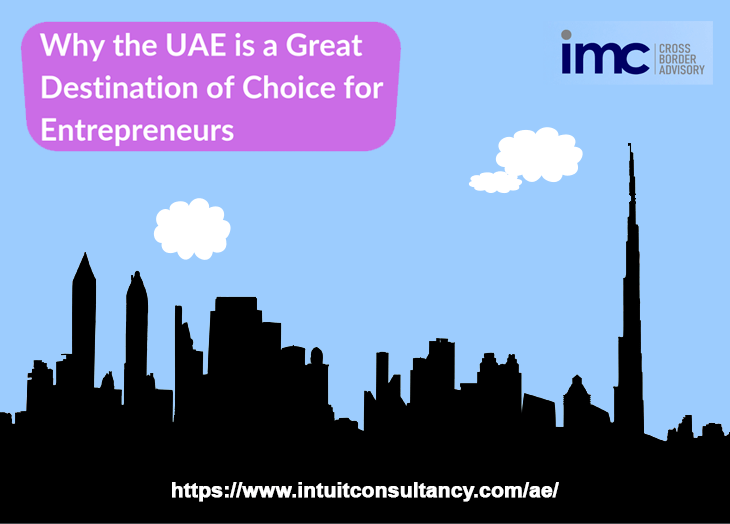
- Newsletter, U.A.E
- July 15, 2019
The Abu Dhabi Government has got directives from HH Sheikh Mohamed bin Zayed Al Nahyan, the Crown Prince of Abu Dhabi and Deputy Supreme Commander of the UAE Armed Forces, to strengthen its commitment towards the development of the private sector. It is therefore announced launching of nine new initiatives recently.
This step was taken as the government is celebrating six months of the three-year Abu Dhabi Development Accelerator Programme known as Ghadan 21.
Ghadan 21 is a unique accelerator programme started in the region to drive economic development, further innovation, and bring in more ease to do business so as to make Abu Dhabi’s economy more dynamic and internationally-integrated.
This three-year programme starting from 2019 to the year 2021 is granted an AED50 billion fund, which is being invested in four strategic pillars, that is, economic, knowledge, liveability and social.
After officially commencing at the start of 2019, the Abu Dhabi Government Private Sector forum, has hosted over 200 leaders from both public and private sectors.
Post the announcements, a major step was taken to make it easier to do business and invest in the Emirates by utilising the ‘Abu Dhabi Instant Licence’. This Instant Licence simplifies the process of applying to do any business or commercial activity and go ahead for company formation in UAE and Abu Dhabi.
The Abu Dhabi Government Private Sector forum was joined by Sheikh Khalid bin Mohamed bin Zayed Al Nahyan, Deputy National Security Adviser, who was overseeing the growth and execution of the new programmes as a Member of the Executive Council and also as the Chairman of the Executive Committee.
All licence applications are now handled and streamlined using a digital portal. Then they are consolidated into larger licencing categories, thus providing greater flexibility to businesses. This easy-to-use system is not only fast, but also effective and accessible to all.
The approvals are processed online and in a prompt manner and therefore, the licence holders in most sectors can begin conducting the business activities instantly.
The Abu Dhabi government is committed to aiding the private sector by offering a supportive business environment and developing new public-private partnership opportunities by making it easier and simpler to do business.
To enable accelerating the participation of the private sector in the economy, the Department of Economic Development has launched two new initiatives.
The first one is the industrial tariffs initiative which aims to improve Abu Dhabi’s competitiveness and encourage the development of the industrial sector. The new industrial tariffs would be decided by an established scoring mechanism, which will be based on the following three criteria – productivity, economic impact, and electric load.
DED’s second initiative is introducing new licences for the technology businesses. The Tech licences package offers 13 new business activities in the Tech vertical, placing Abu Dhabi as one of the global tech leaders.
Abu Dhabi Investment Office (ADIO), the Department of Finance and First Abu Dhabi Bank introduced the ‘SME Credit Guarantee’ scheme by organising a signing ceremony at the opening of the Forum. The SME Growth Loan is expected to provide better accessibility to financing opportunities for SMEs who are based in the UAE capital because of a guarantee offered by the government to all Abu Dhabi banks.
This scheme assures up to 75 percent of the loan value, which would be provided to the bank in any scenario of default, thus, enabling the banks to secure some level of lending to the market.

- Newsletter, Singapore
- July 15, 2019
Family offices are basically legal entities which manage the administration and management of assets and various investments of ultra-high net worth individuals or families (“UHNW“) with the goal of capital preservation, managing investments and succession planning.
A boom in family offices
Recently, there has been a huge rise of set up in the number of family offices and private investment vehicles in Singapore. As per Reuters, between the years 2015 and 2017, the total number of family offices located in Singapore has multiplied four times.
What is a Single Family Office?
A single-family office (SFO) typically refers to a legal entity which manages assets for or on behalf of one particular family and is controlled and wholly-owned by members of that family. Monetary Authority of Singapore (“MAS“) issued an FAQ on 6 February 2017 and updated it on 8 October 2018, in which it clarified the regulatory treatment for all the SFOs in Singapore. Please click here to access MAS’ FAQ updated on 8 October 2018.
MAS also said that it is not their intent to license or regulate SFOs. However, the term “family office” is not defined under Singapore legislation or the Securities and Futures Act (Chapter 289).
An SFO may depend on the exemption given under paragraph 5(1) (b) of the Second Schedule to the Securities and Futures (Licensing and Conduct of Business) Regulations (“SS(LCB)R“), which offers an exemption for a company that manages funds for its related corporations.
An SFO may depend on the exemption under the SS(LCBR) only where it involves:
- a corporation that manages the funds for its related corporations, as per paragraph 5(1)(b) of the SS(LCBR); or
- as per para 5(1)(c) of Second Schedule of the SS(LCBR), any person or individual who conducts business in fund management field for or on behalf of:
- his spouse, son, step-son, adopted son, daughter, step-daughter, adopted daughter, father, step-father, mother, step-mother, brother, step-brother, sister or step-sister; or
- a company or corporation in which he or any of the individuals referred above has full 100% control of the voting power, and where this control is exercised either individually or jointly with any other individuals referred to above.
On the other hand, an SFO which offers financial advisory services to its related firms or corporations may depend on a current exemption from licensing under regulation 27(1)(b) of the Financial Advisers Regulations.
Case to case exemption applicable for SFOs
In cases where an entity managing funds do not fall clearly within such a scope, then exemptions might still be available on a case-by-case basis. The company/entity might seek a licensing exemption from MAS under s 99(1)(h) of the SFA.
If MAS has to gauge an application for licensing exemption as an SFO, it would need the following information:
- names of the SFO’s shareholders and directors;
- a chart showing the shareholding structure of the particular SFO;
- an explanation of how the SFO is related to the investment fund vehicle and also to the family and beneficiaries;
- an explanation of the family’s profile whose assets are going to be managed by the SFO; and lastly
- details of the nature of activities which would be carried out by the SFO.
The application to MAS for getting such an exemption could take anywhere between two to four months to get reviewed depending on the quality of the information that has been submitted, the complexity of the arrangement, and also responsiveness of the applicant.
SFO arrangements contemplated by the MAS
MAS deliberates the following arrangements to be largely typical of SFO arrangements. An SFO that has or is planning to have these arrangements is recommended to include the information while applying to MAS for exemption:
- In case there is no common holding company, however, the assets managed by the SFO are directly held by natural persons of a single family;
- In case the assets are held in a discretionary trust, then the settlor of that trust and the beneficiaries are also members of the same family;
- In case a family trust is set up for purposes of charity, then the charitable trusts are funded wholly by settlor(s) from a single family; or
- When the non-family members like key employees of the SFO are shareholders in the SFO for aligning economic interest and risk-sharing, then the initial assets and supplementary injection of funds are exclusively funded by a single family.

- Newsletter, U.A.E
- July 15, 2019
Dubai’s economic development is strengthening before the Expo 2020 project and this is the apt time for company formation in Dubai. The country’s economy is expected to grow faster in this year and in 2020 because of robust growth in major sectors with GDP going over Dh400 billion in 2019.
Last year, the preliminary economic growth has slackened to 1.9 percent but it is likely to gain momentum this year going up to 3 percent and further to 3.7 percent in 2020. The development is reinforced by business services, construction and real estate, hotels and restaurants, and also transport and logistics sectors. However, the trade war escalation, soft consumer spending and sluggish global growth could pose risk to the growth of Emirates in medium term.
The Central Bank of the UAE has forecasted that the economy would expand at 2 percent rate this year. The UAE GDP went up 2.2 percent in quarter 1 of 2019. The nation’s GDP is expected to grow at the same rate in the quarter 2 of 2019, but, it would slow down in the quarter 3 and 4 going down to 2 percent and 1.6 percent respectively.
Dubai Economy Tracker index made by Emirates NBD has recovered severely year-to-date, and has touched 58.5 in May, due to stronger output, continued price discounting and new order growth.
Dubai Statistics Centre (DSC) is of the view that the emirate’s economy expanded to 1.94 percent in the year 2018 going to Dh398.13 billion. It was driven by an upsurge in trade and infrastructure sector investments. Now, the GDP is slated to reach Dh410 billion mark in 2019 resulting in 3 percent growth and up to Dh425 billion in 2020 after 3.7 percent growth.
Monika Malik, who is the chief economist at Abu Dhabi Commercial Bank, has forecasted the economic activity getting stronger in 2019 and 2020, going up from the GDP growth level in 2018.
“Central to the recovery is the outlook for stronger investment activity, in part linked to greater project implementation to complete infrastructure and facilities ahead of Expo 2020 Dubai. The Expo itself, should then boost tourism inflows and related spending, including in hospitality services. However, we highlight the ongoing global uncertainties and have taken a cautious approach at this point on the external backdrop,” she said.
Anish Mehta, who is the vice-chairman of the Institute of Chartered Accountants of India of the Dubai chapter, was of the view that Dubai’s growth is going to speed up because of diversification into varied economic activities in contrast to previous years when the economy was majorly driven by oil and real estate.
Manjeet Singh Chhabra, who is the managing director of credit rating agency called CRIF UAE, forecasted that Dubai would grow at a modest rate in remaining 2019 and the growth would pick up further in the year 2020. If you need any assistance to set up your business and for best company formation in UAE, do get in touch with us and we would be happy to help.

- Article, U.A.E
- July 5, 2019
The recent announcement by the UAE Cabinet on Tuesday was welcomed by both firms and residents, when they listed the business activities which will be eligible for up to 100 percent foreign ownership as per a law approved last November, as the nation seeks to bring in more investment from overseas and thus create jobs for its people.
The listing of 122 economic activities in 13 sectors ranges in renewable energy, agriculture, space, manufacturing, information and communications, logistics, transport, hospitality, food services, and many others.
“Our goal is to open and expand economic sectors, attract new investors and cement the global competitiveness of our national economy,” said Sheikh Mohammed bin Rashid, the Prime Minister of the UAE and Ruler of Dubai, on Twitter on Tuesday.
“Local governments [across the seven emirates of the UAE] will determine the percentage of ownership in each activity according to their circumstances,” he tweeted. In some emirates, some of these activities could also require to have an Emirati shareholder, even though the foreign ownership limit increases.
Earlier, foreign investors were permitted to hold up to 49 percent of a business or firm that is registered in the UAE, except if it was situated in a designated free trade zone, and they had to have a partner or an Emirati investor who usually held the remaining 51 percent.
Similar to other GCC nations, which conventionally depended upon hydrocarbons to empower their economies, the UAE has executed reforms to fortify and diversify during a phase of lower oil prices. Various reforms such as reducing business registration fees to augment the non-oil private sector and announcing a 5 percent VAT in the month of January last year, as per a GCC-wide agreement.
The Emirates has recently also begun issuing long-term residency visas to some expats to persuade them to reside longer and also invest in the country. Special permanent visas known as “gold card” were granted to expats who contributed significantly in to the UAE economy.
The IMF or the International Monetary Fund forecasted in April that the state’s gross domestic product growth to increase to 2.8 percent in 2019, which is up from 1.7 percent in the year 2018. The amplified construction activity due to Expo 2020 in Dubai is expected to spike up growth.
Relaxing these foreign ownership rules “is a further measure to liberalise and strengthen the investment environment and will be a critical step in the development of new sectors and industries”, said Monica Malik, chief economist at Abu Dhabi Commercial Bank. “A key objective will likely be areas linked to technologies and ones that will support job creation.”
Including logistics and storage activities in the listing would “allow investors to own projects in e-commerce transport, supply chain, logistics and cold storage for pharmaceutical products”.
Professional, technical and scientific activities also get the eligibility – “which enables ownership of laboratories for research and development in biotechnology”.
The listing also has administrative services, educational activities, support services, healthcare, construction, and arts and entertainment.
When the law was issued in November in the UAE’s Official Gazette, the UAE government published a list of a dozen sectors which were still not eligible to qualify for 100 percent foreign ownership. Some examples for these are banking, oil and gas, utilities, telecoms, road and air transport, and medical retail (including pharmacies).
The UAE still keeps going up in the World Bank’s ‘Ease of Doing Business’ ranking and figures at number 11 position among a total of 190 economies. Now, this decision will reinforce the UAE’s position as a hub for company formation in Dubai and in the investment community.
If you are thinking of setting up your business in Dubai or Emirates and are stuck on some procedures, do get in touch with us for assistance on best company formation in UAE

- Article, U.A.E
- July 3, 2019
[vc_row][vc_column][vc_single_image image=”30061″ img_size=”full”][/vc_column][/vc_row]

- Article, U.A.E
- June 26, 2019
The UAE has recently unveiled a permanent residency arrangement for expatriates, which is termed as the ‘Golden Card, announced the Kingdom’s Vice President, Prime Minister and Ruler.
As per this step, permanent residency would be granted to all “exceptional” professionals. Almost 6,800 people would get advantage from the scheme in its first round of applications.
He said that this new “Golden Card” system was launched to offer permanent residency to the investors, exceptional professionals like engineers, doctors, scientists and artists.
The Federal Authority for Identity and Citizenship (ICA) will manage and monitor this scheme and come up with more details very shortly, said the UAE Government Communication Office.
This arrangement is also expected to have a positive effect on the local property market as most expats come to Dubai with a money-making mindset and a short-term goal and objective before going back to their home country.
This decision taken by UAE Cabinet to implement a Gold Card for permanent residency would now also allow expats to consider Dubai as a home instead of a short-term temporary plan.
The Gold Card is set to further stabilise the UAE’s economy by inspiring more experienced and distinguished professionals for coming into the country. This clearly means that the property market would also benefit in a big way from this step in consolidating the economy.
This announcement follows last year’s announcement that UAE would offer five or 10-year residency visas for all entrepreneurs, investors, professionals in the medical, research, scientific, and technical fields, and also to the ‘outstanding’ students for encouraging business and developing an attractive investment setting in the country.
The country has already begun offering the longer-term visas to entrepreneurs, investors and scientists.
This move by UAE comes right after Saudi Arabia executed a ‘green card’-style residency arrangement for expats.
The key goal of this special residency system is attracting prosperous and highly-skilled and professional expats and plans to give Dubai residence visa to the special iqama (permit) holders without the requirement of having a Saudi sponsor.
According to the law, any holder of such an iqama would be having a family status, is allowed to recruit workers, buy, own and lease any property or even mode of transport in the country, can get visit visas for their relatives, is allowed to freely enter or exit the Kingdom and also enjoy using designated queues at various airports.
The fee for this particular permit is SAR800,000 ($213,333). A temporary one-year iqama comes at SAR100,000 ($26,666) for the expats. So if you are looking for pro services in Dubai and assistance in Dubai residence visa, do get in touch with us and we would be happy to help.

- Newsletter, U.A.E
- June 26, 2019
The UAE has recently released the Cabinet of Ministers Resolution n. 31/2019, which was brought in effect from 30 April 2019, regarding the Regulations for Economic Substance (ES) in the UAE. The announcement of these new ES rules is a landmark for the UAE’s tax policy and also its alignment with the Base Erosion and Profit Shifting (BEPS) directives of the international Organization for Economic Co-operation and Development’s (OECD). Last year in May, the UAE collaborated with the OECD Inclusive Framework on BEPS and agreed to announce the minimum standards.
One of the pre-requisites to be implemented by the UAE indicates towards the BEPS Action 5 that aims to stop the businesses from incorporating their corporate structures by transferring activities to jurisdictions which have a privileged tax system with the key objective of gaining from a more beneficial tax regime. The rationale behind the ES rules is to introduce certain requirements for companies and businesses to display and exhibit the actual economic activity happening in the UAE. The UAE is in tandem with other jurisdictions that also follow the OECD Inclusive Framework and operate in similar tax environments, that is, where there is no or just nominal tax (NOONs), which have also recently presented ES regulations. For instance, Mauritius, Cayman Islands, Bahrain, and British Virgin Islands. As we updated earlier, UAE was included in the previous blacklist from the EU that came out in March 2019. Now, with these new ES rules, it is expected that the UAE should be hopefully removed from the European Union (EU) blacklist of tax havens.
The UAE ES rules are largely parallel to the regulations announced by other nations, as they follow the directions issued by the EU and OECD. Fundamentally, there are three tests that any resident entity (or ‘Licensee’ as known in the UAE law) undertaking relevant activities is supposed to fulfil to validate economic substance. You must note that these rules would not apply to businesses or entities who are tax residents outside the UAE (this should be authenticated by a tax residence certificate or a letter or authorization from the foreign tax authority or other required evidences). Additionally, any UAE commercial firm in which the Government of any UAE Emirate, the UAE Government itself, or any governmental authority has any direct/indirect ownership in the share capital also gets an exception from the ES rules.
What is the Economic Substance (ES) Test?
- The ‘Directed and Managed’ Test: The entity or company would have to be directed and managed or run in the UAE as per relevant activity; for example, regular board meetings, certain quorum of directors should be physically present, the minutes of all the board meetings should be kept in the country, etc.
- The ‘Core Income Generating Activities (CIGA)’ Test: The company which is performing any of the specified relevant activities for the purpose of the ES rules would require to prove that the relevant CIGA’s have been undertaken in the UAE. The pre-conditions for the CIGA Test differ depending on the relevant activity that is in question. These are listed below as per the UAE law and what is expected as core income generating activities performed in the UAE to be conforming with the ES rules:
Relevant Activity & Its Examples of CIGAs
Banking: Managing risks, raising funds, taking hedge positions, offering loans, credit or other financial services to customers, managing their capital and preparing investor reports
Insurance: Forecasting and calculating risks, insuring or re-insuring against risk, offering insurance services to clients, and underwriting insurance and performing re-insurance
Fund Management: Decision making on holding or selling the investments, calculating risks and managing reserves, deciding on currency, interest fluctuations and also hedging positions, preparing investor reports
Lease Finance: Deciding funding terms, finding and then acquiring the assets to be leased, deciding the financing and leasing terms and duration, monitoring and updating or revising agreements, and managing risks
Headquarters: Taking important management decisions, incurring operating expenses for group entities, and coordinating group activities
Holding Company: All business-related activities deriving income from dividends or capital gains received from equity interest
Shipping: Overhauling, maintaining ships, managing the crew, tracking shipping, deciding which goods to order and when to deliver, and organising and overseeing various voyages
Intellectual Property (IP):
Strategic decision making and managing all the principle risks concerning:
- Development and exploitation of the intangible asset generating income
- Acquisition done by third parties and succeeding exploitation and protection of intangible asset; carrying on and performing the ancillary trading activities by which the intangible assets are exploited which leads to income generation from third parties
Distribution and Service Centre: Transporting and storage of components, material or products ready for sale, managing the inventory, taking orders, offering consulting or other additional administrative services
Important points to remember about CIGAs and relevant activities:
- The UAE ES rules permit that CIGAs can be subcontracted to a corporate service provider located in the UAE, but that’s subject to thorough supervision by the business or entity. Though, the economic substance of the service providers would not be counted again and again or multiple times by various entities when demonstrating their own substance in the UAE.
- Pure Holding Companies who completely earn dividends and capital gains income are put under lighter economic substance scrutiny and thus a reduced test is applied to check: (i) their compliance regarding the submission of documents, various records and information to the applicable UAE Regulatory Authority and (ii) if they have the required number of employees and if they have premises for holding and conducting the business.
- In case the Holding Company is earning extra relevant activity income other than dividends and capital gains; for instance, service charges, management fees, etc, then the standard three-level ES Test would have to be observed for that extra or additional activity. Please remember that the regulation does not bring any materiality threshold, so if the guidance gets some additional clarity on this, any extra income earned by the holding company would have to necessarily meet the ES rules.
- It is vital to point that for the purpose of the ES rules, the applicable activities of
- Distribution and Service Centre and
- Intellectual Property related to transactions or charges with global parties only. Thus, regular commercial business for any such activities done with non-related parties will not be covered by the new rules.
3) The ‘Adequate’ Test: The company would be required to hire an adequate number of qualified employees in the UAE and then incur adequate or sufficient expenditure inside the jurisdiction. Besides that, they must have an adequate physical presence in the UAE. The applicability of the ‘Adequate’ test would depend on the particular facts and usually vary case to case. The UAE regulations expect that a directive would be issued to elucidate any expression or concept that is covered by the law, which includes the meaning of the term ‘adequate’.
Talking about the timeline, the UAE Regulatory Authority gets a period of six years to evaluate if a UAE business or firm is compliant with the ES rules during a particular financial year within this period. To observe and control the adherence of the UAE businesses and companies with the new rules, an annual report has to be submitted within one year after the end of the financial year to the Regulatory Authority. The annual report should include all the information that proves the entity’s compliance with the ES Test like the type of relevant activity, the place or location of the business, how many full time employees do they have, and all the information that supports the CIGA elements and particulars about the outsourced activity.
Additionally, the legislation anticipates additional annual statement to be given to the Regulatory Authority notifying whether the UAE entity has stopped carrying on a relevant activity, if their gross income related to a specific relevant activity is being taxed in some other jurisdiction and what is the date of the financial year ending. The UAE regulations have still not provided any further explanation on the process, templates and pre-requisites for the reports and notifications, which are likely to be included in the directive that would be issued in due course. In case of any non-compliance of the ES Test, the UAE law anticipates penalties going up to AED50,000. In case the UAE entity is not able to comply with the ES rules in a following financial year, then the penalties could be imposed for up to AED300,000 including other administrative actions like the suspension, barring or non-renewal of the entity’s trade license. Furthermore, assuming that there would be a greater amount of information being exchanged between tax authorities, and in case the economic substance or ES is not met, then there is a chance of extra tax-related implications like non-deductibility of expenditures in some specific jurisdictions for global parties and bigger scrutiny on all the cross-border transactions.
IMC’s Role
IMC can pitch in to assist you in various ways here. We can help you to understand the above rules in a better manner and then apply this information on your current and impending investments. As he UAE ES rules are very similar to the regulations released in other jurisdictions, IMC leverages from its rich experience in the execution of the ES rules in other countries particularly in what all supporting proof and documents are needed to prove substance and the practical amends required in the businesses and companies to meet the requirements. We can help you by offering you a review on what are the requirements for the economic substance on your company’s present or prospective activities in the UAE so that you could meet the test set forth in the law. Moreover, as there are many compliance obligations that all the UAE entities have to comply with, we can guide you on how to analyse and collate all the supporting documents, and then review all the information that needs to be submitted to the relevant authorities. We also keep a track on the timelines and cut-off dates for all the reporting and notifications.

- Article, Saudi Arabia
- June 20, 2019
Saudi Arabia has emerged as one of the ideal destinations for business and entrepreneurship from across the globe. Thanks to the active government measures and many associated benefits such as the lowest average tariff rate in the Middle East, simplified procedures for company formation in Saudi Arabia, liberal political environment, 100% foreign ownership, lower tax rate and numerous other incentives.
Saudi Arabia has taken steps to simplify business setup for foreign companies through SAGIA, which supports approvals, licensing, and visa processing. Ongoing reforms and investor-friendly policies have positioned it as a top business destination in the MENA region. Key sectors drawing interest include real estate, hospitality, and construction. Here’s a look at the basic requirements and registration process for starting a business in the country. To know more about how to open a branch office in Saudi Arabia, you may get in touch with IMC Group.
Basic Requirements for Registering a Company in Saudi Arabia
- Investment Share Capital – A minimum of Saudi Arabian Riyal (SAR) 5,00,000 is required to register a new company
- Number of Shareholders – As per the law of the country, a company can have at least 2 to a maximum of 50 shareholders.
- Auditor – Every private limited company in Saudi Arabia shall appoint an auditor.
- Application for Company Incorporation – The company incorporation application has to be submitted with the SAGIA along with all the supporting documents.
- Hiring Labour – If a foreign company is willing to hire local employees, it has to first get permission from the Ministry of Labour by submitting the required supporting papers.
- Zakat and Income Tax – Every private limited company in Saudi Arabia has to obtain Zakat and income tax certificate or license from the Ministry of Finance.
Taxation for companies in Saudi Arabia
- Tax Incentives – If a foreign company is registered in certain economic cities located in the under-developed provinces of KSA, it enjoys various tax incentives.
- Tax Free – There is no tax levy on the sales and hiring foreign employees, provided certain conditions are fulfilled.
- Corporate Income Tax – Corporate income tax is levied at the rate of 20% to 45%. However, the rate varies from service to service and product to product.
Documents Required for Company Formation in Saudi Arabia
| Document | Description |
| Investment License Application Form | Submitted to the Ministry of Investment (MISA) to request the license for foreign business activities. |
| Notarized Board Resolution | Lists partners’ names and capital shares, validated through notarization for legal standing. |
| Audited Financial Statements (Last 3 Years) | Company’s financial records reviewed by a certified accountant, showing past financial performance. |
| Articles of Association (AOA) | Defines the company’s internal structure, management responsibilities, and operational procedures. |
| Passport Copies of Shareholders | Clear and valid passport copies for every shareholder involved in the setup. |
| Proof of Identity and Address for Directors and Shareholders | Verification documents, such as IDs or utility bills, confirming identities and residential addresses. |
| Approval from Relevant Saudi Ministry | Written consent from the concerned authority based on the company’s sector and business nature. |
| Attested Power of Attorney | Legal authority assigned to a representative to act for the company, verified through proper attestation. |
Business Structures in Saudi Arabia
Structure | Key Features |
Limited Liability Company (LLC) | 2–50 shareholders; liability limited to share capital; minimum capital SAR 500,000 |
Foreign Branch Office | Requires approval from MCI; subject to Foreign Investment Law |
Commercial Agency | Foreign entities appoint a local Saudi agent; regulated by MCI |
Joint Stock Company | Minimum 5 shareholders; liability limited to share capital; capital requirements: SAR 2 million (private), SAR 10 million (public) |
Technical & Scientific Office | Provides support services; cannot engage in commercial activities; requires MCI license |
Process of Company Incorporation in Saudi Arabia for Foreign Investors
- Reserve the Company Name
Submit a name reservation request through the Ministry of Commerce and Industry’s online portal. - Submit the Articles of Association
Prepare and submit the Articles of Association to the Ministry of Commerce and Industry for approval and official stamping. - Notarize the Articles of Association
Visit the Notary Public to notarize the stamped Articles of Association. - Open a Local Bank Account
Set up a corporate bank account with a local Saudi bank to deposit the required initial capital. - Obtain an Investment License from SAGIA
Apply for and secure the investment license through the Saudi Arabian General Investment Authority (SAGIA). - Receive the Certificate of Registration
Upon securing the necessary approvals, obtain the company’s Certificate of Registration. - Register with Required Government Authorities
Complete registrations with other relevant authorities such as:- General Authority of Zakat and Tax (GAZT)
- General Organization for Social Insurance (GOSI)
- Municipality (for commercial license)
- Chamber of Commerce and Industry
FAQs
1. What types of companies can be registered in Saudi Arabia?
2. Is it necessary for foreign companies to have a Saudi partner?
3. What is the minimum capital required to set up a company in Saudi Arabia?
4. How long does it take to register a company?
5. What documents are needed for company registration in Saudi Arabia?
6. What tax obligations do companies have in Saudi Arabia?
7. Are there restrictions on foreign investors in certain sectors?
8. Is a physical office address mandatory for registration?

- Newsletter, Oman, Qatar, Saudi Arabia, U.A.E
- June 17, 2019
Here are some recent updates about employment and immigration law in various GCC countries.
United Arab Emirates (UAE)
The DIFC Authority has recently suggested a new mandatory DIFC Employer Workplace Savings scheme (“Savings Scheme”) that is designed to substitute the current end-of-service gratuity (“Gratuity”) regime. Coming in effect from 1 January 2020, as per the proposal all DIFC entities would now not accrue Gratuity but would have to contribute to the Savings Scheme that the employer would have to fund on a monthly basis. This Scheme would be based in the DIFC and operated and run by the trustees appointed by the DIFC. Now, all the DIFC employers and employees need to participate in the Savings Scheme only except if an employer works out a qualifying system of their own.
Kingdom of Saudi Arabia (KSA)
KSA’s Consultative Assembly has just approved a new draft law controlling the means, circumstances and terms under which residency visa or permits would be issued for highly-skilled professionals and wealthy foreigners without, the requirement for a sponsor or employer. The specific terms and circumstances under which this residence permit would operate has yet to be announced. Some reports say that all the eligible global nationals would be able to get a residence permit for up to one-year (which would be renewable) or applicable for an unlimited time duration, along with other qualifying conditions such as proof of sufficient financial resources, possessing a clear criminal record and having medical fitness. The qualifying residence permit holders can also sponsor visitor visas for their family and relatives, employment visas for their domestic workers, and they can also own property and travel around without restrictions to and from the KSA, among other advantages.
Oman
The Ministry of Manpower has extended the current six month ban (again for the same period) on expat workers working in the construction and cleaning sectors.
Additionally, the Ministry has further established that the following professions would only be taken by Omanis in the private sector: Administration Director, Assistant General Manager, Human Resources Director, Training Director, Personnel Director, Public Relations Director, Follow-up Director, Assistant Manager, and all administrative and clerical jobs. Those expats who are currently working in any of the aforementioned roles will be allowed to continue in these roles until the end of their existing residency visas; however, they will not be able to renew them.
This change shows that the Ministry is curtailing the historic expatriate dependency by various employers in the private sector and enhance the flow of Omani citizens into the private sector workforce.
Qatar
As per the Qatar work and residency permit procedure, citizens from Pakistan, Sri Lanka, Bangladesh, India, Nepal, Indonesia, Tunisia, and the Philippines (the “Designated Nationals”) were supposed to complete the post-arrival immigration formalities (such as biometrics, medical examination, signing the employment contract and then residence permit issuance) in Qatar. But, as per the recent amendments introduced in Qatar, the Designated Nationals will have to get their medical examination and biometrics done at the Qatar Visa Centers located in their respective nations before the Ministry of Labour in Qatar would issue them a work visa that allows them to enter the country and file for residency permit. As of now, this process is valid for all the Designated Nationals except for those from Nepal, Tunisia, Indonesia and the Philippines who would soon be covered under this new rule.
Qatar is the first GCC country to propose permanent residency status to its foreign nationals, but that is subject to some qualifying conditions. The Ministry is now accepting applications for permanent residency – almost up to 100 every year – as the new regime is now fully in force.
The Qatar government has introduced a new law that relaxes the exit permit requirement that was imposed on foreign employees (under the Qatari federal labour law) as a compulsory pre-condition to leaving the country, be it on a temporary or permanent basis. This new law then came into force on 28 October 2018. As per the head of the ILO’s Project Office in Doha, this law would be abolished for all the categories of foreign citizens by 2019 end. During this interim period, the individuals was have been currently exempted from the remit of the Qatar Labour Law still need to get an exit permit to go out of Qatar (requiring the sponsor’s permission) till the exit permit rule is abolished wholesale. This modification to cover all employee categories is a welcome move and would facilitate a more flexible and fluid workforce.
Conclusion
The speed of amendments in immigration and employment law throughout the GCC has been intensifying and seems to remain as a major growth facilitator as the GCC economies drive forward their agendas for diversification and foresights for the short and longer-term. We are committed to continue monitoring these amendments and updates and keep you posted on any developments

- Newsletter, Singapore
- June 17, 2019
For those who haven’t already done it, Singapore companies should consider registering alternate addresses particularly for their chief executive officers (CEOs), directors, and company secretaries.
The Accounting and Corporate Regulatory Authority of Singapore (ACRA) announced new regulations three years ago, permitting CEOs, directors, and company secretaries of all the Singaporean businesses and entities to go in for registering an alternate address. Though some have taken benefit of this opportunity, there are many companies who are still not aware of this change, and thus, they still reveal their residential address to the public.
The amendment was introduced to safeguard the privacy of these people by allowing that their residential address should remain confidential.
The context to this change
During the registration of a company in Singapore, the company’s top officials have to provide their residential address – which may be in Singapore or in some other country – so that if need be, they can be easily contacted by ACRA. Now, this information becomes a part of the company profile, which could be bought by anyone without any difficulty for just SGD5.50.
Some firms buy company profiles for the purpose of compiling mailing lists, which results in in the officers of that company possibly swamped with unwanted post or mail at their home address. However, the bigger problem was the likelihood of a disgruntled customer getting an easy access to the addresses of top officers. This regulatory amendment was made to eradicate such risks.
Registration of an alternate address
Officials of an organisation are allowed to register an alternative address with ACRA for a fee of SGD40. However, they should meet the following criteria:
- only one alternate address is permitted to be registered for each officer
- it should not be same as their residential address
- it should be an address where they can be contacted
- it should not be a post office box number
- it must be situated in the same jurisdiction as the official’s residential address, which is not necessarily in Singapore.
Please note that the alternate address would be the address, which is made available to the public; however, the residential address (should also be registered with ACRA) would be listed on the internal records only.
It’s very vital for the officials to remain contactable at the alternate address they have given. If they’re not available there, then they can be fined for up to SGD10,000 or may get imprisonment for a period less than two years, or both. Their alternate address could also be deleted from the registry and the residential address could be made public instead.
An official who is found to be in default would not be allowed to register another alternate address for a period of three years, and he/she should pay another registration fee whenever they do.
With these kind of serious possible penalties, it’s imperative that the CEOs, directors, and company secretaries strive to get proper professional advice.
A Member Firm of Andersen Global
- 175+ Countries
- 525+ Locations
- 17,500+ Professionals
- 2350+ Global Partners


















 IMC Group
IMC Group